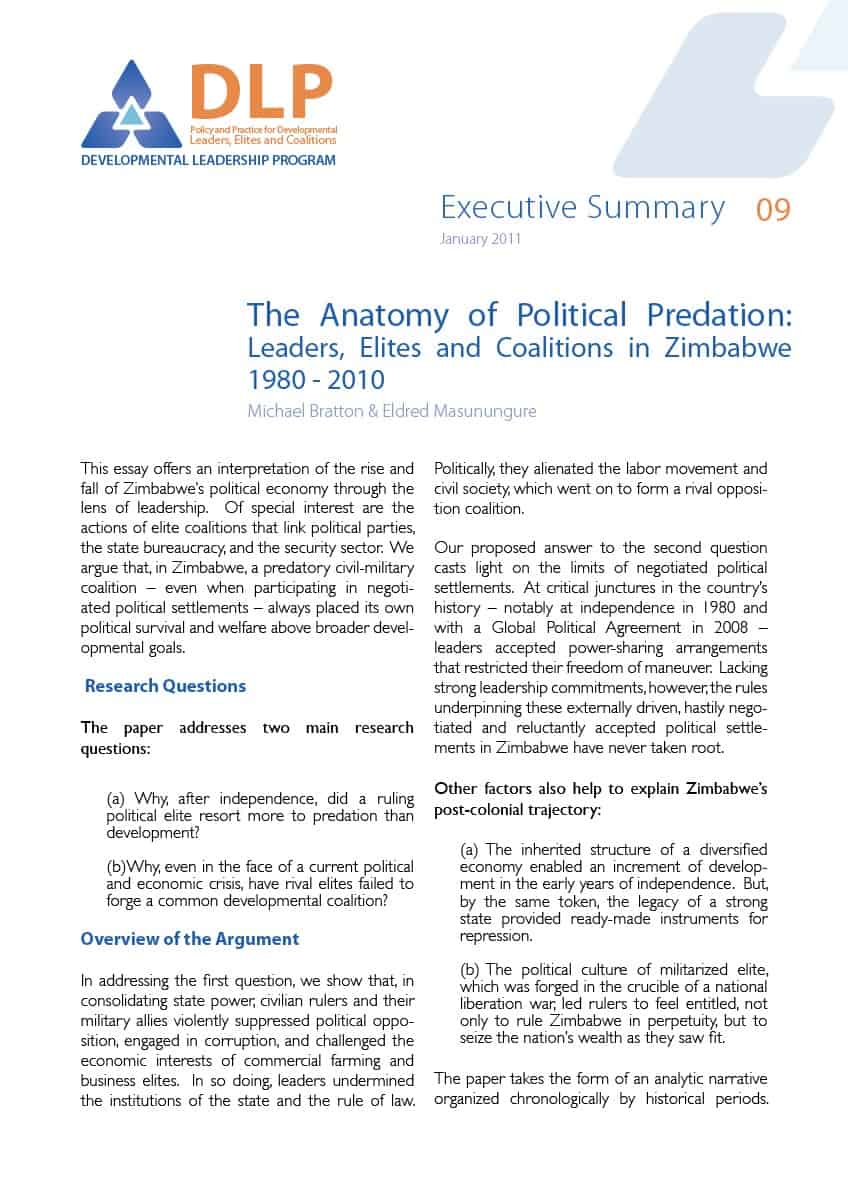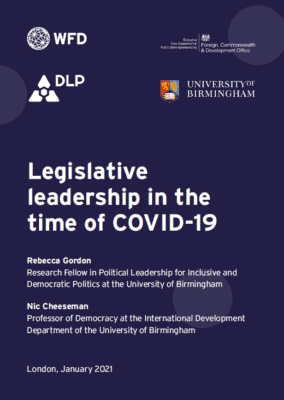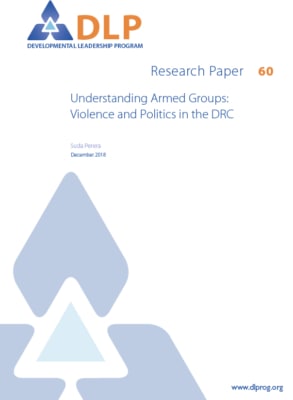This essay offers an interpretation of the rise and fall of Zimbabwe’s political economy through the lens of leadership.
Of special interest are the actions of elite coalitions that link political parties, the state bureaucracy, and the security sector. We argue that, over time, the civil-military coalition within Zimbabwe’s former ruling party placed its own political survival and welfare above broader developmental goals. In consolidating state power, the rulers violently suppressed political opposition, engaged in predatory corruption, and challenged the economic interests of commercial farming and business elites. In so doing, leaders undermined the rule of law and alienated the labor movement and civil society, which went on to form a rival opposition coalition.
The paper also casts light on the limits of externally driven, hastily negotiated and reluctantly accepted political settlements. At critical junctures in the country’s history – notably at independence in 1980 and a Global Political Agreement in 2008 – leaders entered compromise power-sharing arrangements. Lacking strong leadership commitments, however, the rules underpinning political settlements in Zimbabwe never took root, thus inhibiting the country’s progress toward democracy and development.
Download the summary below or see the full paper.









